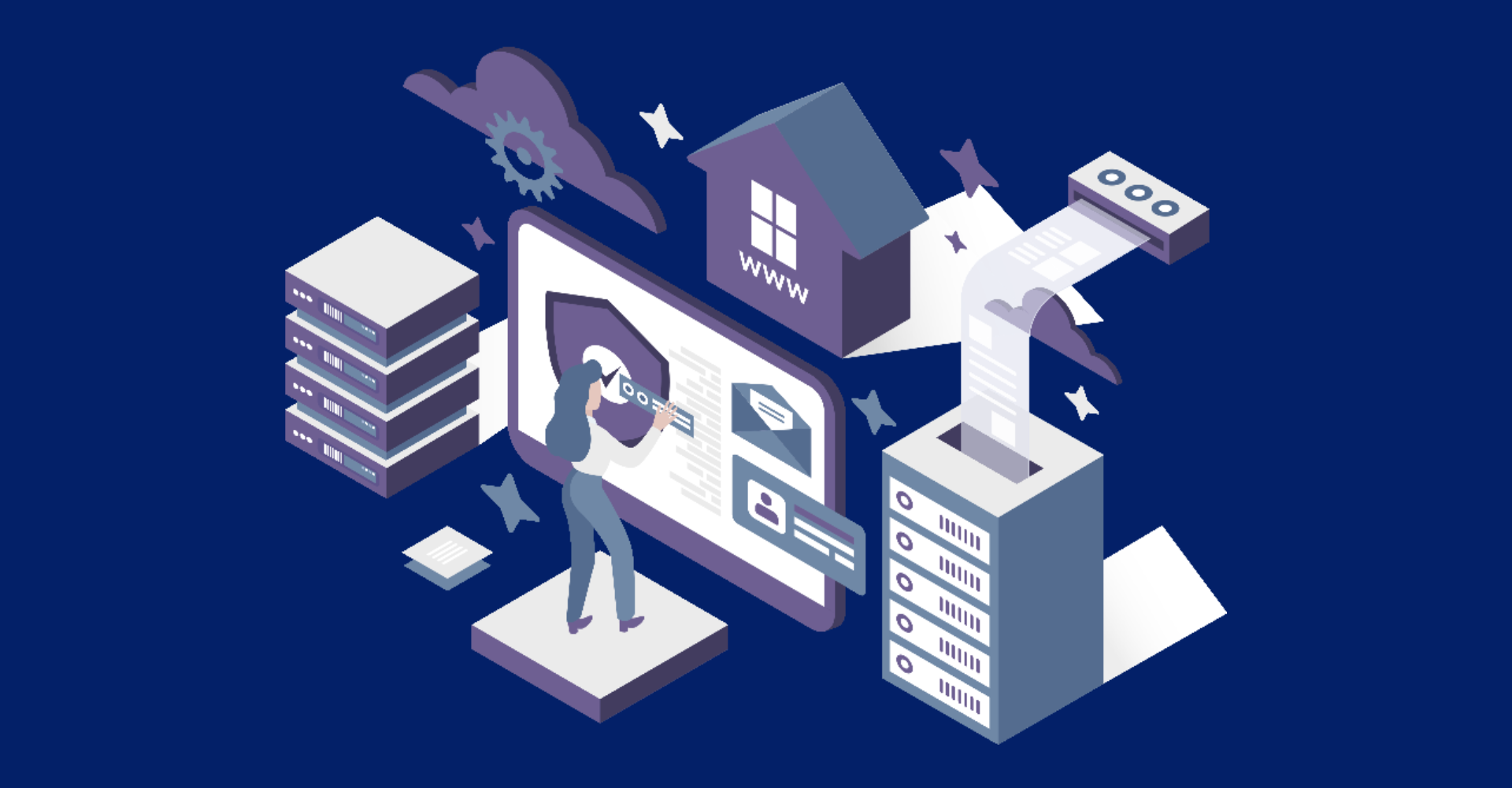In today's technology-driven world, businesses heavily rely on IT systems and infrastructure to support their operations. However, the IT realm is not immune to disruptions, whether they are caused by cyber threats, hardware failures, or natural disasters.
To safeguard against such risks and ensure the continuity of critical IT services, organizations must focus on business continuity planning specifically tailored to the IT domain. In this blog post, we will explore the significance of business continuity in the IT realm and highlight key strategies to ensure resilience and uninterrupted operations.
Understanding IT Business Continuity
IT business continuity involves comprehensive planning and strategies that enable organizations to mitigate risks, respond to disruptions, and ensure the availability of critical IT services. It encompasses a range of factors, including data protection, disaster recovery, system redundancy, and effective incident response. By adopting IT-focused business continuity measures, companies can minimize downtime, protect data assets, maintain customer trust, and uphold their reputation.
Key Elements of IT Business Continuity Planning

To safeguard against potential IT disruptions and ensure the continuity of critical systems, organizations must focus on key elements of business continuity planning. In this section, we will explore these elements that help organizations maintain IT resilience and minimize the impact of disruptions. Let's dive in!
- Risk Assessment and Impact Analysis: Conduct a thorough assessment of potential IT risks, vulnerabilities, and threats. This includes analyzing the impact of events such as cyber-attacks, system failures, power outages, and natural disasters. By understanding the risks, organizations can prioritize critical IT systems and define appropriate recovery objectives.
- Data Backup and Recovery: Implement a robust data backup strategy to protect critical business data. Regularly back up data and store backups in secure offsite locations or in the cloud. Additionally, establish a data recovery plan to ensure swift restoration of data in case of an incident.
- Redundancy and Failover Systems: Implement redundancy measures to minimize the impact of system failures. This can involve deploying redundant servers, network connections, and storage systems. Failover mechanisms ensure that if one system fails, operations seamlessly transfer to a redundant system, minimizing downtime and ensuring continuity.
- Cybersecurity and Incident Response: Strengthen cybersecurity measures to protect IT systems and data from cyber threats. This includes implementing firewalls, intrusion detection systems, encryption protocols, and regular vulnerability assessments. Establish an effective incident response plan to swiftly identify, contain, and recover from security incidents.
- Testing and Training: Regularly test and validate the effectiveness of IT business continuity plans through simulation exercises and drills. This helps identify potential gaps or weaknesses in the plan and allows for necessary adjustments. Additionally, provide training to IT staff on emergency procedures, incident response, and disaster recovery processes.
Benefits of IT Business Continuity Planning

In today's technology-driven world, organizations rely heavily on their IT systems and infrastructure to support critical business operations. However, disruptions in the IT realm can have far-reaching consequences, leading to downtime, data loss, and damaged reputations. That's why implementing effective IT business continuity planning is crucial.
In this section, we'll explore the key benefits of IT business continuity planning and why organizations should invest in this proactive approach to ensure resilience and minimize the impact of disruptions. Let's dive in!
- Minimized Downtime and Losses: With a well-defined IT business continuity plan, organizations can significantly reduce downtime during IT disruptions. This translates to minimized financial losses, as the company can quickly recover and resume normal operations, ensuring uninterrupted service delivery.
- Data Protection and Compliance: Robust data backup and recovery mechanisms ensure the protection of critical business data. By adhering to data protection regulations and compliance requirements, organizations mitigate legal and reputational risks associated with data breaches or loss.
- Maintained Customer Trust: Continuous availability of IT services builds customer trust and loyalty. By ensuring that critical systems and online services remain operational, even during disruptions, organizations maintain their reputation and retain customer confidence.
- Improved Incident Response and Recovery: IT business continuity planning equips organizations with effective incident response strategies. This enables them to identify and resolve IT incidents quickly, minimizing the impact on business operations and mitigating potential risks.
- Adaptability and Scalability: IT business continuity planning promotes adaptability and scalability in the face of changing business needs and technology advancements. As organizations grow and evolve.
How are IT Business Continuity Solutions Brought into Effect in the Event of an Incident

When an incident occurs that threatens the continuity of IT operations, IT business continuity solutions are brought into effect through a systematic and well-executed response plan. Here's a general overview of how IT business continuity solutions are implemented during an incident:
- Activation of Incident Response Team: The incident response team, comprising key IT personnel, is activated immediately after the incident is detected. This team is responsible for assessing the situation, coordinating response efforts, and executing the IT business continuity plan.
- Isolation and Containment: The first step is to isolate and contain the incident to prevent further damage or spread. This may involve disconnecting affected systems or segments of the network from the rest of the infrastructure to limit the impact.
- Assessment and Communication: The incident response team assesses the severity and impact of the incident, communicating updates and progress to stakeholders, including management, employees, customers, and external parties, as appropriate. Clear communication channels are established to ensure everyone is informed and aware of the ongoing situation.
- Activation of Backup and Recovery Systems: Backup and recovery systems, such as redundant servers, data backups, and failover mechanisms, are activated to restore critical IT services and minimize downtime. This may involve switching to alternative hardware or infrastructure to ensure continuity of operations.
- Data Restoration: If data loss has occurred, the incident response team follows the data recovery plan to restore lost or corrupted data from backups or other sources. Data integrity and consistency are verified during the restoration process to ensure accurate and reliable information.
- System Restoration and Testing: Once critical systems and data are restored, the IT team verifies the functionality and integrity of the restored environment. System testing and validation procedures are performed to ensure that everything is operating correctly and meets the required standards.
- Documentation and Lessons Learned: Throughout the incident response process, detailed documentation is maintained to capture all actions taken, decisions made, and lessons learned. This information helps improve future incident response and update the IT business continuity plan to address any identified gaps or areas for improvement.
By following these steps and leveraging the pre-established IT business continuity solutions, organizations can effectively respond to incidents, minimize disruption, and restore critical IT operations in a timely manner.
Partner with Us for Comprehensive Business Continuity Solutions

In the ever-evolving landscape of business, ensuring continuity and resilience is paramount. As a full-stack custom software development company, we understand the critical importance of business continuity for enterprises of all sizes. We offer comprehensive business continuity solutions tailored to meet the unique needs of your organization and keep your operations running smoothly, even in the face of unforeseen disruptions.
Our team of expert developers, designers, and IT professionals specializes in crafting robust and customized business continuity strategies, specifically designed to address the challenges of the digital realm. Here's why we are the ideal partner to support your organization's business continuity efforts:
- Experience and Expertise: With years of experience in the industry, we possess extensive knowledge and expertise in developing custom software solutions. We stay up-to-date with the latest trends, technologies, and best practices to deliver innovative and effective business continuity solutions.
- Comprehensive Approach: We take a comprehensive approach to business continuity, covering all crucial aspects such as risk assessment, data backup and recovery, system redundancy, cybersecurity, and incident response. Our holistic approach ensures that your organization is well-prepared for any potential disruptions.
- Tailored Solutions: We understand that every organization is unique, with its own specific needs and requirements. Our team works closely with you to understand your business processes, infrastructure, and objectives. We then develop tailored business continuity solutions that align with your organization's goals and ensure seamless operations.
- Cutting-Edge Technologies: We leverage the power of cutting-edge technologies to build resilient and scalable software solutions. From cloud-based systems to redundant architectures, we harness the latest advancements to create robust IT environments that can withstand disruptions and maintain uninterrupted operations.
- Reliable Support and Maintenance: Our commitment to your organization's success extends beyond the development phase. We provide ongoing support and maintenance services to ensure that your business continuity solutions remain up-to-date, secure, and optimized. Our dedicated support team is always available to assist you whenever needed.
In Conclusion
Safeguard your business enterprise with our business continuity solutions.
Don't leave the fate of your organization's operations to chance. Partner with us and take proactive steps towards safeguarding your business with our comprehensive business continuity solutions. We have the expertise, experience, and dedication to empower your organization with the resilience it needs to thrive, even in the face of adversity.
Reach out to us today to discuss your specific requirements and learn how our custom software development services can help support your business continuity goals. Together, we can ensure the stability, reliability, and uninterrupted growth of your enterprise.






